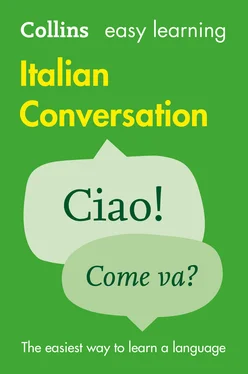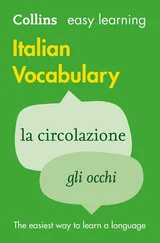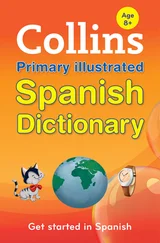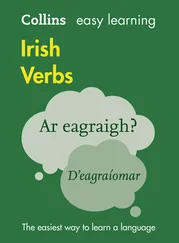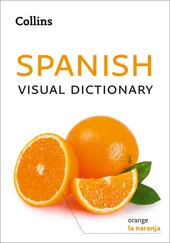• If you’re behind the wheel of a car, be ready to produce your driving licence if asked for it by the police. If you haven’t got it with you, you may well be fined. The police officer might ask you: patente, prego( your driving licence, please ). Italian drivers also have to be able to produce their libretto di circolazione( registration document ) and their assicurazione( insurance certificate ).
• Motorways are not free in Italy. When you go onto the motorway, you get a biglietto. When you come off the motorway this will show how many kilometres you’ve driven and how much you have to pay ( il pedaggio). Telepassis an electronic toll collection system used to collect il pedaggioand gives access to reserved lanes.
• If you’re asked to produce your bigliettoon the bus, the train or the underground, it means that you have to show your ticket to the inspector.
• Generally, you have to buy your ticket before getting on a bus. Once on board the bus, you date-stamp the ticket by punching it in a machine. You can buy tickets at newsagents and many tobacconists. If you are staying in a place for some time, it may be worth buying an abbonamento, which will last a week or a month from when it is first stamped.
• Train tickets need to be punched before you get on a train. Tickets are only valid if date-stamped, so if you have forgotten to do this, it is advisable to go and see il controllore( the ticket inspector ) as soon as possible, or you might be fined.
• If you’re in a hurry, you can hop on the train and buy a ticket directly from a ticket inspector. This will cost you more, however. If you contact the inspector as soon as you get on the train or before the first stop the fine is around 5 €; otherwise you’ll be faced with a more expensive fine of 60 € or more.
• Queues tend to be informal in Italy. So if you’re trying to get to an information desk and don’t know if it’s your turn, just ask Tocca a me?. If you want to let someone in before you, you can say prego, dopo di lei( after you ).
Home from home
Buonanotte! – Sleep well!
If you’re going to stay in Italy, the phrases in this unit will provide you with the language you need to help you find the sort of accommodation you want and ensure everything is to your satisfaction when you’re there. We’ll also give you a few tips on what the receptionist or your landlord or landlady may say to you.
To say what kind of accommodation you want in Italian, use vorrei( I’d like ), or, if you want to be slightly more direct, voglio( I want ). These come from the verb volere( to want ). For more information on volere, see here.
| Vorreiuna stanza con balcone. |
I’d likea room with a balcony. |
| Vorreiprenotare una c a mera d o ppia per due notti. |
I’d liketo book a double room for two nights. |
| Vorreifermarmi tre notti. |
I’d liketo stay three nights. |
| Vorreiprenotare una stanza nel vostro agriturismo per due settimane. |
I’d liketo book a room in your agriturismo for two weeks. |
| Voglioun appartamento luminoso. |
I wanta flat with plenty of light. |
| Vogliocambiare stanza; quella che mi avete dato è troppo rumorosa. |
I want tochange rooms; the one you gave me is too noisy. |
| Voglioun rimborso. |
I wanta refund. |
| Non vogliamouna stanza che dia sulla strada. |
We don’t wanta room overlooking the road. |
When you want to find out if something is available, use Avete…?( Do you have…? ) or Avreste…?( Would you have…? ). These come from the verb avere( to have ). For more information on avere, see here.
| Aveteinformazioni su dove alloggiare? |
Do you haveany information about accommodation? |
| Avetec a mere l i bere? |
Have you gotany rooms free? |
| Avrestedegli asciugamani, per favore? |
Would you haveany towels, please? |
| C’èaccesso ad I nternet? |
Have you gotinternet access? |
If you want to ask for something, you can use Mi dà..?( Can I have…? ).
| Mi dàla chiave della stanza, per favore? |
Can I havethe key to my room, please? |
| Mi dàuna ricevuta, per favore? |
Can I havea receipt, please? |
| Ci dàuna lista degli alloggi dispon i bili? |
Can we havea list of available accommodation? |
| Mi potrebbe dareancora due asciugamani? |
Could I havetwo more towels? |
If you are asking someone whether they can do something for you, use Può…?( Can You…? ) and Potrebbe…?( Could You…? ) or, more informally, Puoi…?or Potresti…?. They all come from the verb potere( to be able ). For more information on potere, see here.
| Puòdarmi conferma della prenotazione per posta elettr o nica? |
Can Youconfirm the booking by email? |
| Mi puòsvegliare alle sette, per favore? |
Can Yougive me an alarm call at seven o’clock, please? |
| Potrebbecambiare gli asciugamani, per favore? |
Could Youchange the towels, please? |
| Potrebbefarmi vedere la stanza, per favore? |
Could Youshow me the room, please? |
| Le dispiacerebbemostrarmi come funziona il forno? |
Would You mindshowing me how the oven works? |
| Le dispiacerebbechiamarmi un taxi? |
Would You mindcalling a taxi for me? |
| Le dispiacerebbeportarmi la val i gia in c a mera? |
Would You mindtaking my suitcases up to my room? |
When you are enquiring about somewhere to stay you will need to give information about yourself. Use sono( I am) to talk about yourself and siamo( we are ) to include the people who are with you. These come from the verb essere( to be ). For more information on essere, see here.
Читать дальше
